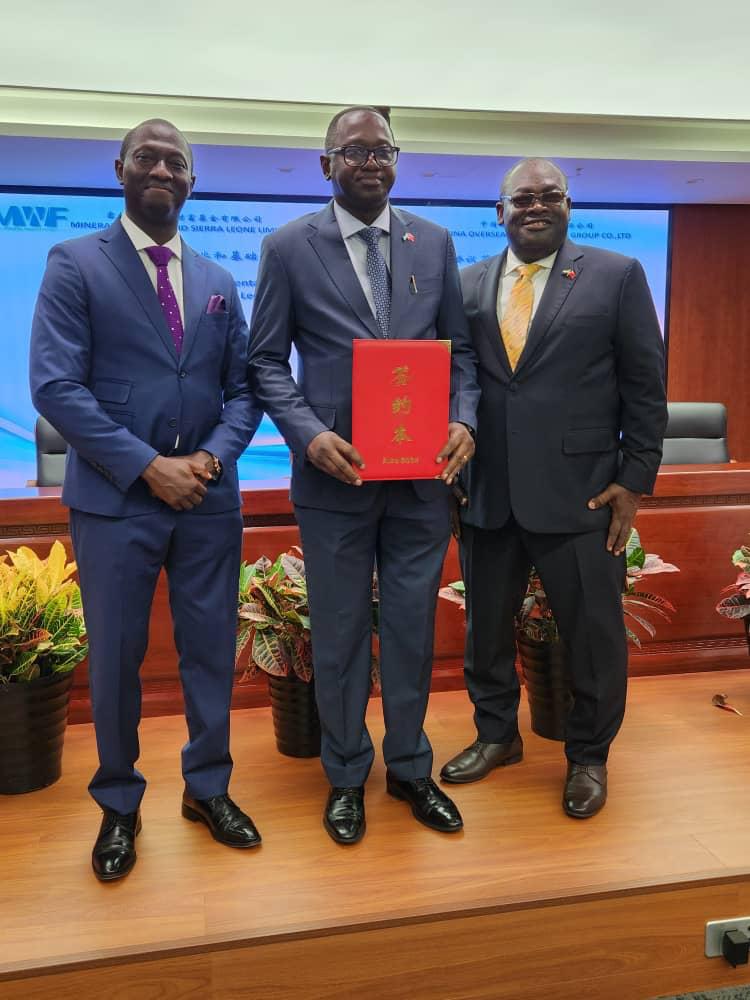Sierra Leone has secured a landmark $300 million investment from China to develop the Tonkolili North Iron Ore Deposit, marking a major milestone in the country’s push to harness its mineral wealth for national development.
The deal was sealed on July 1st in Beijing, where the Mineral Wealth Fund (Sierra Leone) Limited (MWFSL) signed a Supplementary Agreement with China Overseas Engineering Group Company Limited (COVEC). This agreement builds on a previous Framework Agreement signed in September 2024.
According to a press release from the Sierra Leone Embassy in China, the funds will cover the construction of the mine, transportation infrastructure, and beneficiation facilities. Importantly, the financing will be structured under an Engineering, Procurement and Construction (EPC) contract, a Deferred Payment Agreement, and a Joint Venture Agreement—ensuring no burden on Sierra Leone’s national budget.
Minister of Finance Sheku Ahmed Fantamadi Bangura, who also serves as Chairman of MWFSL, hailed the agreement as “a transformative step” for the country. “COVEC’s commitment ensures that our mineral resources directly benefit the people through jobs, infrastructure, and national revenue,” he said. He emphasized that the deal is fully aligned with the Mines and Minerals Development and Management Corporation Act of 2023, which governs responsible mineral exploitation and state participation.
COVEC Chairman Jiang Zhe also welcomed the partnership, stating, “We are proud to collaborate with Sierra Leone and committed to delivering world-class infrastructure that supports the country’s development goals.”
The Tonkolili North project forms part of the government’s broader strategy to generate national wealth through state-owned mining operations without depending on public funds. Under the 2023 Act, MWFSL—established as a 100% state-owned project company—is empowered to lead development in the sector.
With this new agreement, Sierra Leone positions itself for significant economic advancement through strategic resource management and international partnership.
By Elizabeth Kamara and Rosaline Turay



